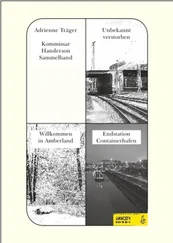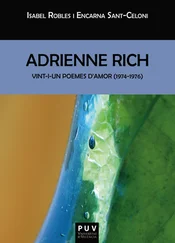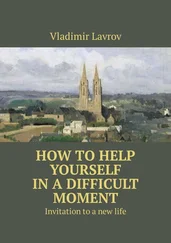Adrienne Celt
INVITATION TO A BONFIRE
This collection of papers was assembled as a project of the Donne School Alumnae Society of Goslings, from statewide archives, 1984.
The project was funded by a posthumous grant from one of the Donne School’s most generous benefactors, Mrs. Vera Orlov (née Volkov), who wished, she said, for the research to make a definitive historical mark. After the tragic death of her husband, the writer Leo Orlov—who taught briefly at the Donne School in the days preceding his murder in 1931—Mrs. Orlov returned to her family home in France, but remained a dedicated supporter of the school.
The section of Mrs. Orlov’s will that earmarked this money for the Society of Goslings also bequeathed a number of documents, many still in probate. One important document, however, arrived alongside the funding: a diary seemingly written by the young Donne School employee Zoe Andropov, who died under hotly debated circumstances the same year as Mr. Orlov. Its presence in Mrs. Orlov’s possessions remains a point of inquiry, especially as documentation about Mrs. Orlov herself remains in such short supply.
This diary, along with a previously unseen package of correspondence written by Mr. Orlov, forms the backbone of the enclosed research. The findings are separated into three main categories: Ms. Andropov’s diary (under the section heading “Zoya”), Mr. Orlov’s letters (under the section heading “Lev”), and all other primary or secondary source documents (newspaper clippings, police reports, interviews, et cetera), with editorial notes as appropriate. The documents in the second and third categories have been included wherever they were found in Ms. Andropov’s diary, or else wherever the Gosling alumnae felt they would offer the most useful perspective.
The personal records in this collection make frequent use of Russian name variations, patronymics, and diminutives, and these, for disambiguation, are listed here:
Leo Orlov: also referred to as Lev, Lev Orlov, and Leo (or Lev) Pavlovich Orlov
Vera Orlov: also referred to as Renka, Verenka, Vera Orlova, Verena Petrovna Volkova, and Vera Volkova
Zoe Andropov: also referred to as Zoya and Zoya Ivanovna Andropova
We hope that readers find this project to be in keeping with the institution’s mission of honesty, clarity, and revelation.
Editor’s note: All entries from this diary appear to have been written between June and July of 1931 .
1.
Let me begin by saying I did not think it would end this way. No—let me begin by saying I will burn this diary shortly. There’s a fireplace here in the cabin where I’m staying, complete with an iron grate and a long pair of tongs, and I’ve been practicing every night with bits of driftwood, though it makes me over-warm. Summer air, hot blaze. The New Jersey coastal breeze not enough of a balm to keep sweat from rolling down my forehead. I’m reminded of my childhood in Lipetsk, how even on sweltering nights we had to set bonfires in order to do away with the weeds in the sugar beet fields, and there were always two or three spots charred black amidst the green leaves. I was good at it then, striking the match in just the right place. My father would rumple my hair with his enormous, practical hands, and my mother would gather me up in her skirts as I ran away from the burning brush. But it’s been years since I had reason to do more than light the stove to put on a kettle.
I wanted to make sure I could still arrange the heat, maximize the incendiary consequences. So I’ve been crumpling paper balls to varying degrees of tightness, stacking logs in a crisscross pattern, then log cabin–style, then teepee. Once, a gust of wind blew down the chimney at just the right moment, and the whole pile went up with a woof , throwing me backwards and singeing my eyelashes. I’ve been trying to re-create it ever since.
Maybe I’m too worried about the diary. After all, this cabin—small and shingled, cheap but sufficient—wasn’t rented in my name. I’m a ghost here, same as every occupant who’s come and gone, invited for the weekend to enjoy the brisk delicacies of the eastern seaboard and leaving promptly on the Monday train. Everyone who’s dipped their toes in the waves and then come back in to wrap a sweater round their shoulders. I’m—say, a photo in a lost locket, dropped between some godforsaken floorboards. No one will think to look for me here, and so they won’t look for the diary either.
But. Why not burn it, just to be safe? Already I’ve burned my ties to home, to the school and all the people I knew there. All the people I loved. Why not these pages too? My aim, anyway, is not posterity, but instead to take a sharp, bright pin and use it to bore a hole—one might say a pinprick—in the swollen history that rests on my shoulders. If I don’t let out some of that air, I think I will go mad, or at the very least confess to someone unwise. And she would not like that. I think she would not let me. Little Vera with her tall shoes, her black hair, her long and perfect nose.
I took her husband. Or at the very least I tried. Many afternoons he took me, whether out in the garden or in the hazy light of my bedroom, always filtered through the screen I placed in front of my window to offer privacy while changing. He sniffed me out in whatever room I happened to occupy, or whatever restaurant in our small shared city where I might have been tucking into a pork cutlet and sipping a glass of sweet white wine. Once he approached me from behind in a very nice place, and bent down in full view of the room to smell my neck. I felt the soft skin of his appendage brush against the nub of my spine, felt the small hairs there pulled upright in thrall to his breathing. The knife dropped from my hand—just a short ways, but it hit the plate with a crash, chipping off a small bit of china and turning the subcurrent of attention in the restaurant into a mass of unabashed stares. By the time I gathered myself to turn around, though, he’d disappeared, leaving behind him only the soft ping of the bell at the top of the door.
You’ll think (you! I suppose I have to imagine someone to talk to as I write, a sympathetic ear. Though even you I picture with a hint of disapproval, listening more for the tickle than the truth) that I only want to confess this passion. The affair. Stolen hours, eyes meeting across some distance and fizzing with sin. People love broken rules, after all. The rise of a pesky, risk-taking underdog. We have, on the whole, so little of our own that when we rip things from the hands of the ruling class they take on new value, offering us a reflected glow. I knew this every time I met him, my Lev, my life. I knew that the oblong of his head and the irony of his eyebrows would have meant nothing to me if he were young and poor and free. If I hadn’t read his work for years, first in periodicals and then in volumes, and hadn’t already loved his mind, slept with his books pressed between my knees for safekeeping. I knew he belonged to Vera when he came to me, came for me, came into my hands as if dropped there by parachute. And it’s true, his unavailability only made me hold him tighter.
But I have no need to exorcise his possession of me from my mind. It’s what Vera did that threatens to sink me. And to get it right, to tell it whole, I have to start at the beginning.
Читать дальше













